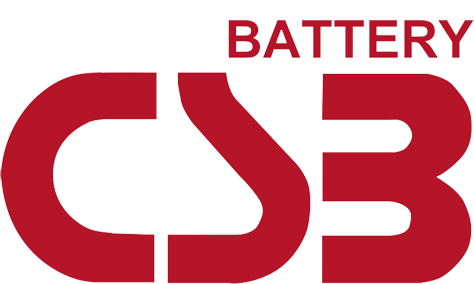Industrial vs Standard UPS: Key Differences for UK Businesses
Welcome to an enlightening journey where we dissect the crucial yet often misunderstood topic of Uninterruptible Power Supply (UPS) systems. Understanding the ins and outs of these power safety nets can seem daunting, especially when choosing between different types, such as standard and industrial. So, let's demystify this complex world together.
With power outages becoming frequent events globally, power backup is not just a bonus; it's critical. This is where UPS systems earn their worth in gold, ensuring a seamless power supply despite the uncertainties that abound. Within the UK market, we observe a clear distinction between standard and industrial UPS systems, each offering unique benefits and built to cater to a particular set of requirements.
Is an industrial UPS a better fit for your large-scale operation or would a standard UPS meet your needs? Strap in as we delve deep into the world of UPS systems, comparing different types, technologies, and price points to guide you to the perfect power solution that suits your needs. What waits ahead is a comprehensive comparative analysis brilliantly designed to illuminate your understanding of UPS systems in the UK. Can you already feel the spark? Let's get started!

Understanding Uninterruptible Power Supply (UPS)
Imagine you're working on an important project when suddenly, a power outage strikes - it's every computer user's nightmare. Luckily, there is a device designed to prevent such disasters: the Uninterruptible Power Supply, or UPS. This nifty piece of equipment ensures that your devices keep running, even when the electricity goes out, allowing you to save your work and power down your equipment safely. In this section, we'll dive into what exactly a UPS is and explore the various types of UPS systems available.
Definition of UPS
A UPS is essentially a battery backup that provides power long enough for the equipment to correctly shut down when utility power fails. It helps prevent data loss and minimises the wear and tear that unexpected shutdowns can cause to your equipment. But remember, a UPS system is not meant to provide long-term power; instead, it gives you enough time to save your work and properly turn off your system.
Now that we've addressed what a UPS is, let's look at the various types of UPS systems that exist.
Types of UPS systems: Offline, Line-Interactive, Double-Conversion
There are primarily three types of UPS systems that cater to different power protection needs:
- Offline UPS: Also known as Standby UPS, this type provides basic features and is generally lighter, easier to install, and more affordable. It is ideal for home and offices where power quality is not a major concern.
- Line-Interactive UPS: The Line-Interactive UPS offers enhanced power protection by regulating low and high voltage without resorting to battery power, which prolongs battery life. It's suited to businesses in regions with poor power infrastructure.
- Online Double-Conversion UPS: This is the most advanced type of UPS. It guarantees a consistent and clean power supply, irrespective of the input power condition. It is ideal for mission-critical applications, medical facilities, and data centres where maintaining power quality is of utmost importance.
Remember, understanding your power needs is critical to choosing the right UPS. Your choice should depend on your power requirements, budget, and the equipment you need to protect. Whether it's about safeguarding your home computer or ensuring your business remains operational during a power cut, a suitable UPS system can deliver peace of mind.
While navigating the world of UPS systems might seem daunting at first, being enlightened about the basics makes it simple and easier. Here's hoping this knowledge empowers you to make an informed decision when purchasing a UPS and safeguards your devices against unwelcome power disruptions.
Comparison between Industrial and Standard UPS Systems
Ease of Installation
When deciding between industrial and standard UPS (Uninterruptible Power Supply) systems, the ease of installation plays a crucial role. While standard UPS systems are designed for simplicity and user-friendliness, they are mainly plug-and-play devices, perfect for protecting a handful of workstations or a small server room. Industrial UPS systems, on the other hand, while providing more features and long-lasting protection, may require a bit more time and technical know-how for installation. It's safe to say though, that irrespective of the slightly more complex set-up process, the numerous advantages of industrial UPS systems make them an invaluable asset for industries that can't afford downtime.
Cost
When it comes to cost, standard UPS units are typically cheaper upfront, making them a popular choice for small businesses and home offices. Industrial UPS systems, though more expensive, provide greater value over time due to their durability and robust design. Consider this an investment for peace of mind, knowing your mission-critical appliances and data are well protected for years to come.
Lifespan
Industrial UPS systems tend to have a significantly longer lifespan of approximately 20-30 years, making them a superior choice for operations that require round-the-clock power supply. On the contrary, standard UPS systems have a design life of about 10-15 years, which makes them suitable for less demanding environments.
Rigorous Testing
Both industrial and standard UPS systems undergo rigorous testing, but industrial units are usually tested under harsher conditions to ensure they can handle varying stressors. They are designed to function reliably even in the most challenging situations, validating their higher price tag.
Operating in Harsh Conditions
Imagine a standard UPS system and an industrial unit operating in a harsh environment. The industrial UPS, with its rugged design and build, will outperform the standard one every time. It is designed to survive, and even thrive, in challenging conditions such as extreme temperatures, dusty rooms, and high levels of humidity, places where a standard UPS might fail.
Power Output
Power output for enterprise UPS equipment typically ranges from 225 kVA to 1200 kVA, again highlighting the diverse needs of industrial applications. This is more than enough output to protect large data rooms, manufacturing processes, and other power-intensive applications. Standard UPS units, on the other hand, offer sufficient power for small to medium-sized businesses but may fall short of providing sufficient protection for larger applications.
Features
Last but not least, industrial UPS systems often include features such as dual source inputs and external manual bypass switches to enhance reliability. These are fantastic features to have should the primary power source fail. However, these advanced features may not be necessary in smaller environments served well by much more straightforward standard UPS systems.
In summary, the decision between an industrial and standard UPS will ultimately come down to your specific needs and the complexity of your power infrastructure. Always consider the costs in relation to the potential value derived over time, the ease of installation, and the environment in which your UPS system will operate.
Battery Life Considerations in UPS Systems
When delving into the technological world of Uninterrupted Power Supplies (UPS), a crucial aspect often overlooked is the battery life - an essential component that determines its effectiveness. As we venture into this fascinating topic, we'll mainly concentrate on two widely used battery types in UPS systems - traditional lead-acid batteries and lithium-ion batteries.
Traditional Lead-Acid Batteries
Initially, let's shed light on traditional lead-acid batteries. These batteries were the pioneers, revolutionising the groundwork for UPS systems. While they are renowned for their affordability and trustworthiness, it's also notable that their lifespan typically ranges anywhere between 2 to 5 years.
- Reliable and economical
- Life expectancy of 2 to 5 years
- Require regular maintenance and careful handling
However, keep in mind that lead-acid batteries demand consistent maintenance. Negligence in their care could shorten their lifespan dramatically, meaning you'd have to replace them sooner, which, in the long run, could translate to higher costs.
Lithium-Ion Batteries
On the other side of the spectrum, we have lithium-ion batteries. These modern marvels of technology have gained popularity in UPS systems due to their long-lasting characteristics. Here, we're talking about a significantly longer lifespan than lead-acid batteries - up to a whopping 10 years!
- High energy density and compact size
- Long lifespan of up to 10 years
- Safe with less maintenance
While the initial costs of lithium-ion batteries can be higher, the extended lifespan and reduced maintenance needs can potentially offset these higher up-front expenses over time. It's a smart investment if longevity and reduced upkeep are topping your priority list.
Now that we've unravelled the life expectancy context in which these batteries operate, it's clear that considering battery life is crucial when choosing the best UPS system for your needs. Never underestimate the significant role that something as simple as a battery can play in such a critical piece of equipment. Find what best fits your needs and make sure your power never takes an unexpected pause!
Surge Protection Capability of UPS Systems
There's an old adage that says, "Prevention is better than cure." This wisdom certainly rings true when dealing with sensitive electronic equipment that can be adversely affected by sudden power surges. While many of us routinely use Uninterruptible Power Supply (UPS) systems as a source of power backup, less is known about its additional feature - surge protection.
Many UPS systems are equipped with inbuilt mechanisms to neutralise power surges and provide reliable electricity flow to the connected devices. Yes, you've heard that right! Apart from supplying power during blackouts, UPS systems also protect your sensitive electronic equipment from potential damage due to power surges.
So how does this process work? When a power surge occurs, the surge protection component of the UPS system promptly acts as an intercept, absorbing the excess power and preventing it from reaching the connected devices. The UPS system, in essence, acts as a 'buffer zone' between the power supply and your equipment, keeping the latter safe from unexpected electrical 'spikes.'
The protective capability of these systems is significant, with various models adept at handling power quality events, such as voltage sags, swells, and outages. They continuously monitor and stabilise output voltage, ensuring it remains within a safe range for your equipment, even under variable loads.
Let's take a look at some of the benefits of UPS systems with surge protection:
- Reliable Power Supply: UPS provides a steady and consistent power supply to all connected devices, ensuring their optimal operation.
- Damage Prevention: By absorbing excess energy during power surges, UPS systems prevent potential damage to the connected devices.
- Continuous Voltage Monitoring: UPS systems continuously monitor and calibrate the power supply, ensuring that it remains in the safe range for your equipment.
A UPS system with surge protection offers more than just backup power. It provides peace of mind knowing that your equipment is protected from power surges, helping to extend its life and enhance overall performance.
As we move more and more towards digitisation, the importance of surge-protected UPS systems will only continue to grow. These systems are an investment for both homes and businesses, promising a reliable and secure power supply for all your vital devices. We can confidently assert that integrating a UPS system with surge protection in your power management strategy is not just a smart move – it's a power move.
Market Analysis of UPS Systems
As businesses across the globe increasingly become dependent on technology, the need for an unwavering power supply system becomes crucial. Power interruptions can lead to significant losses for businesses, hence the rising adoption of Uninterruptible Power Supply (UPS) systems. This increased demand has, in turn led to broad expansion in the UPS market worldwide. Let's delve deeper into the market trends and predicted growth.
Global UPS Market
The global UPS market has shown a remarkable trajectory over recent years. As per available data, the market was valued at about USD 12.39 billion in 2023. However, its potential doesn't stop there, as projections indicate a market value close to USD 22.42 billion by 2030. This growth is primarily driven by various industry sectors, like IT and data centres, healthcare, and manufacturing, among others. A common thread among these sectors is their reliance on continuous power supply to maintain their critical operations.
The following are the key factors influencing the growth of the global UPS market:
- The surge in demand for reliable power sources due to increased data usage and digitalisation
- Growing awareness of the cost of power outages in industrial businesses and the subsequent rise in the adoption of UPS systems
- Technological advancements in UPS systems, making them more energy-efficient and user-friendly than ever before.
It's also worth noting that the impact of the Covid-19 pandemic was dual-sided. While there has been a rise in demand from sectors like healthcare and IT due to their elevated use of digital platforms, other industry sectors have seen a significant slowdown in their operations, thus impacting the overall market growth.
European UPS Market
Moving onto a more regional perspective, the European UPS market paints an optimistic picture as well. With a valuation of approximately USD 2.38 billion in 2023, the market is set to grow to approximately USD 3.74 billion by 2031, reflecting a decent compounded annual growth rate (CAGR) of 5.9%.
Driving this growth are influential factors like:
- Steady increase in digitisation across businesses and personal spaces
- Higher prevalence of power fluctuations due to ageing grid infrastructure
- Stringent energy regulations pushing for more efficient energy solutions
While these promising numbers demonstrate significant growth in the UPS market globally and in Europe, they also hint towards a future where uninterrupted power supply becomes an integral part of businesses. As they say, 'Forewarned, forearmed'. We hope that this market analysis helps businesses better equip themselves to cater to their uninterrupted power needs efficiently.
Conclusion
Navigating the world of Uninterruptible Power Supply (UPS) systems can certainly be complex, especially when you're trying to distinguish between industrial and standard UPS systems. However, the journey becomes smoother when you've got a trusted partner like Secure Power to guide you every step of the way.
Our team at Secure Power is committed to simplifying this complex landscape for our customers. With our industry expertise, tailored solutions and a comprehensive range of products, we help you make informed decisions that best meet your power needs.
It's time to prioritise your enterprise's power stability, data protection, and operational continuity. So whether you operate in an industrial setting where robustness and high power output are paramount, or in a standard office where ease of installation and cost-effectiveness are key, we've got the apt UPS system waiting for you.
Explore our cutting-edge solutions and power your growth journey with Secure Power - where power meets reliability. Trust us to keep your systems running, your data safe, and your business resilient.
Remember, the right UPS system is not merely an investment; it's a commitment to uninterrupted efficiency and the peace of mind that comes with it.
Frequently Asked Questions
-
What is an Industrial Uninterruptible Power Supply (UPS)?
An Industrial Uninterruptible Power Supply (UPS) is a backup power system specifically designed for use in industrial settings, such as factories, manufacturing plants, and critical infrastructure facilities. It provides a continuous and reliable power supply to protect sensitive equipment and prevent downtime during power outages or fluctuations.
-
What is a Standard Uninterruptible Power Supply (UPS) in the UK?
A Standard Uninterruptible Power Supply (UPS) in the UK is a backup power system designed for use in residential, commercial, and small-scale industrial settings. It provides temporary power during electrical disruptions and allows for safe shutdown of systems or continuation of operations until the main power supply is restored.
-
What are the key differences between Industrial UPS and Standard UPS in the UK?
The key differences between an Industrial UPS and a Standard UPS in the UK include their design and capacity. Industrial UPS systems are typically larger, more robust, and have higher power output capacities to support critical industrial equipment. Standard UPS systems are smaller, portable, and suitable for residential and smaller commercial applications.
-
Can an Industrial UPS be used in residential or commercial settings?
While it is technically possible to use an Industrial UPS in residential or commercial settings, it may not be the most cost-effective or practical choice. Industrial UPS systems are designed for specific industrial needs and may be overkill for smaller-scale applications. Standard UPS systems are better suited for such environments.
-
What factors should I consider when choosing between an Industrial and a Standard UPS in the UK?
When choosing between an Industrial and a Standard UPS in the UK, consider factors such as your power requirements, the criticality of your equipment, available space, budget, and specific industry regulations. Consulting with an expert or UPS provider can help you determine the most appropriate solution for your needs.














